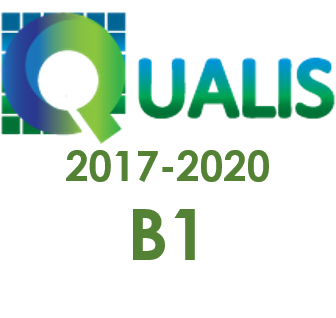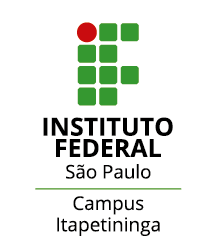Argumentação na ciência
hidroestesista versus hidrogeólogo
Palavras-chave:
Argumentaçao, Hidroestesia, Águas subterraneas, Pseudociência, Educação científicaResumo
É apresentado um estudo sobre a capacidade de argumentação científica em estudantes da Formação Profissional Avançada em Saúde Ambiental. Os alunos completaram um exercício de três etapas, incluindo uma discussão no final de cada etapa. No final, eles tiveram que decidir entre contratar um hidrogeólogo ou um hidroestesista para achar água subterrânea (solução científica ou pseudocientífica). A análise dos argumentos resultantes indica que há uma falta de ligação entre as ideias anteriores dos alunos e os argumentos por eles utilizados. Para melhorar as competências de argumentação e literacia científica dos alunos, o pensamento crítico deve ser incentivado.
Downloads
Referências
ABD-EL-KHALICK, F.; LEDERMAN, N.G. Improving science teachers’ conceptions of nature of science: A critical review of the literature. International Journal of Science Education, v. 22, n. 7, p. 665-701, 2023. https://doi.org/10.1080/09500690050044044
ARMENTIA, J. Ciencia vs pseudociencias. Mediatika. Cuadernos de medios de comunicación, v. 8, p. 559-571, 2002. http://ojs.eusko-ikaskuntza.eus/index.php/mediatika/article/view/127/0
ARTHURS, L. Using student conceptions about groundwater as resources for teaching about aquifers. Journal of Geoscience Education, v. 67, n. 2, p. 161–173, 2019. https://doi.org/10.1080/10899995.2018.1561111
CADEMÁRTORI, Y.; PARRA, D. Reforma Educativa y Teoría de la Argumentación. Revista Signos, v. 33, n. 48, p. 69-85, 2004. http://dx.doi.org/10.4067/S0718-09342000004800006
Canal REDMÁS (21 de marzo de 2014) Zahorí, experto en búsqueda de aguas subterráneas [Archivo de Vídeo]. https://www.youtube.com/watch?v=-AGK5gBCeII
Canal REDMÁS (2 de noviembre de 2013) Buscar agua. [Archivo de Vídeo]. https://www.youtube.com/watch?v=4bdRthx7WX4
CAÑAS, J. A. En busca del acuífero dulce en la ciudad salada. El País. 12 de mayo, 2018. https://elpais.com/elpais/2018/05/02/ciencia/1525272754_207987.html
CHOW, J. Pendular Diagnosis: From Dowsing to Diagnostic Methodology? Seminars in Integrative Medicine, v. 3, n. 2, p. 38-43, 2005.
COSGROVE-MATHER B. Most believe in psychic phenomena. CBS News. 29 April 2002. https://www.cbsnews.com/news/poll-most-believe-in-psychic-phenomena/
DAWSON, V.M.,; VENVILLE, G. Teaching strategies for developing students’ argumentation skills about socio-scientific issues in high school genetics. International Journal of Science Education, v. 40, p. 133–148, 2010. https://doi.org/10.1007/s11165-008-9104-y
ENRIGHT, J.T. Testing Dowsing: The Failure of the Munich Experiments. Skeptical Inquirer, v. 32, n. 1, p. 39-46, 1999.
https://skepticalinquirer.org/1999/01/testing-dowsing-the-failure-of-the-munich-experiments/
ERDURAN, S., GUILFOYLE, L., PARK, W. Science and religious education teachers’ views of argumentation and its teaching. Research in Science Education, v. 22, p. 655-673, 2022.
FERNÁNDEZ-FERRER, G.; GONZÁLEZ-GARCÍA, F. Modelos de localización y funcionamiento del agua subterránea en universitarios de ciencias. Revista Electrónica de Enseñanza de las Ciencias, v. 9, n. 3, p. 716-736, 2010. http://reec.uvigo.es/volumenes/volumen9/ART12_Vol9_N3.pdf
FUENTES, C.; ALCAIDE, E. R. Argumentación lingüística y sus medios de expresión. Arco Libros, 2007.
GÁMEZ, L.A. Los periodistas y las falsas ciencias. Mediatika. Cuadernos de Medios de Comunicación, v. 8, p. 27-37, 2002.
https://ojs.eusko-ikaskuntza.eus/index.php/mediatika/article/view/97
HASSAN, A.B. Arab contributions to hydronymy: the detecting of underground water that led to the construction of water wells. Islamic heritage architecture and art, v. 197, p. 13-25, 2020. https://www.witpress.com/elibrary/wit-transactions-on-the-built-environment/197/37610
KLIX, F. Problem Solving: Deduction, Induction, and Analogical Reasoning. International Encyclopedia of the Social & Behavioral Sciences. En N Smelser & P.B. Baltes (Eds.): International Encyclopedia of the Social & Behavioral Sciences. Elsevier Science, p. 12123-12130, 2004.
LAUGKSCH, R.C. Scientific Literacy: A Conceptual Overview. Science Education, v. 84, n. 1, p. 71-94, 2000.
https://www.researchgate.net/publication/200772545_Scientific_Literacy_A_Conceptual_Overview
LEE, T. D.; GAIL JONES, M.; CHESNUTT, K. Teaching systems thinking in the context of the water cycle. Research in Science Education, v. 49, p. 137-172, 2019.
MACAGNO, F.; WALTON, D.; REED, C. Argumentation Schemes. History, Classifications, and Computational Applications. IFCoLog Journal of Logics and Their Applications, v. 4, n. 8, p. 2493-2556, 2017.
MARANGIO, K.; GUNSTONE, R. Science as “Just Opinion”–The Significance for Science Education of Emerging Social Media. In Values in Science Education (pp.69-89). Springer Verlag, 2020.
MCCARNEY, R.; FISHER, P.; SPINK, F.; FLINT, G.; HASELEN, R. Can homeopaths detect homeopathic medicines by dowsing? A randomized, double-blind, placebo-controlled trial. Journal of the Royal Society of Medicine, v. 95, n. 4, p. 189-191, 2002.
MENADUE, C.B. Pandemics, epidemics, viruses, plagues, and disease: comparative frequency analysis of a cultural pathology reflected in science fiction magazines from 1926 to 2015. Social Sciences & Humanities Open, v. 2, n.1, 100048, 2020. https://doi.org/10.1016/j.ssaho.2020.100048
MILLER, J.D. Public understanding of, and attitudes toward, scientific research: what we know and what we need to know. Public Understandment of Science, v. 13, p.273–294, 2004. https://doi.org/10.1177/0963662504044908
PELÁEZ, E. La quimera del agua. El País. 1 de agosto 1995. https://elpais.com/diario/1995/08/01/sociedad/807228009_850215.html
PREECE, P.F.; BAXTER, J.H. Scepticism and gullibility: The superstitious and pseudoscientific beliefs of secondary school students. International Journal of Science Education, v. 22, n. 11, p. 1147-1156, 2000. https://doi.org/10.1080/09500690050166724
QUEVEDO, G.; GONZÁLEZ, F.; FERNÁNDEZ-FERRER, G. Un estudio sobre pensamiento pseudocientífico en estudiantes de educación secundaria. Didáctica de las Ciencias Experimentales y Sociales, v. 37, p. 147-164, 2019. https://doi.org/10.7203/dces.37.15339
RYAN, T.J.; BROWN, J.; JOHNSON, A.; SANBERG, C.; SCHILDMIER, M. Science literacy and belief in the paranormal-an empirical test. Skeptic, v. 10, n. 4, p.12-13, 2004.
SHERMER, M. Why smart people believe weird things. Skeptic, v. 10, n. 2, p. 62-73, 2003.
SOLBES, J. Questóes sociocientíficas e pensamento crítico: uma proposta para questionar as pseudociências. Tecné, Episteme y Didaxis, v. 46, p. 81-99, 2019.
SOLBES, J. Pensamiento crítico y cuestiones socio-científicas: Formación del profesorado y su transferencia a la práctica. Boletín ENCIC: Revista del Grupo de Investigación HUM-974, v. 5, n. 2, p. 80-90, 2021.
SOLBES, J.; TORRES, N.Y. Educación científica basada en pruebas. Praxis & Saber, v.11, n. 27, p.1-5, 2020. https://doi.org/10.19053/22160159.v11.n27.2020.12287
SOLOMON, J. The rise and fall of constructivism. Studies in Science Education, v. 23, p. 1-19, 1994. https://doi.org/10.1080/03057269408560027
TOULMIN, S. The uses of argument. Cambridge University Press, 2003.
VENVILLE, G. Science Inquiry: Thinking and Working Like a Scientist. In The Art of Teaching Science (pp. 122-139). Routledge, 2020.
VOGT, E.Z.; HYMAN, R. Water Witching U.S.A. (2nd Edition). University of Chicago Press, 2000.
WALKER, W.R.; HOEKSTRA, S.J, VOGL, R.J. Science education is no guarantee of skepticism. Skeptic, v. 9, n. 3, p. 24-28, 2002.
WALTON, D.N. Argumentation schemes for presumptive reasoning. Mahwah, N.J.: Lawrence Erlbaum, 1996.
WHITE, H.; FORBES, C.T. An investigation of undergraduate students’ spatial thinking about groundwater. Journal of Geography in Higher Education, v. 47, n.1, p. 128-148, 2021. https://doi.org/10.1080/03098265.2021.2004582
WHITE, H.; LALLY, D.; FORBES, C. T. Investigating groundwater: Middle school students’ mapping data-driven, computer-based models to socio-hydrologic phenomena. Journal of Geoscience Education, v. 70, n. 1, p. 101-113, 2022.
WHITTAKER, W.E. Grave Dowsing Reconsidered. University of Iowa., 2013. https://archaeology.uiowa.edu/sites/archaeology.uiowa.edu/files/Dowsing.pdf
Downloads
Publicado
Como Citar
Edição
Seção
Licença
Copyright (c) 2023 Revista Internacional de Pesquisa em Didática das Ciências e Matemática

Este trabalho está licenciado sob uma licença Creative Commons Attribution-NonCommercial-ShareAlike 4.0 International License.




